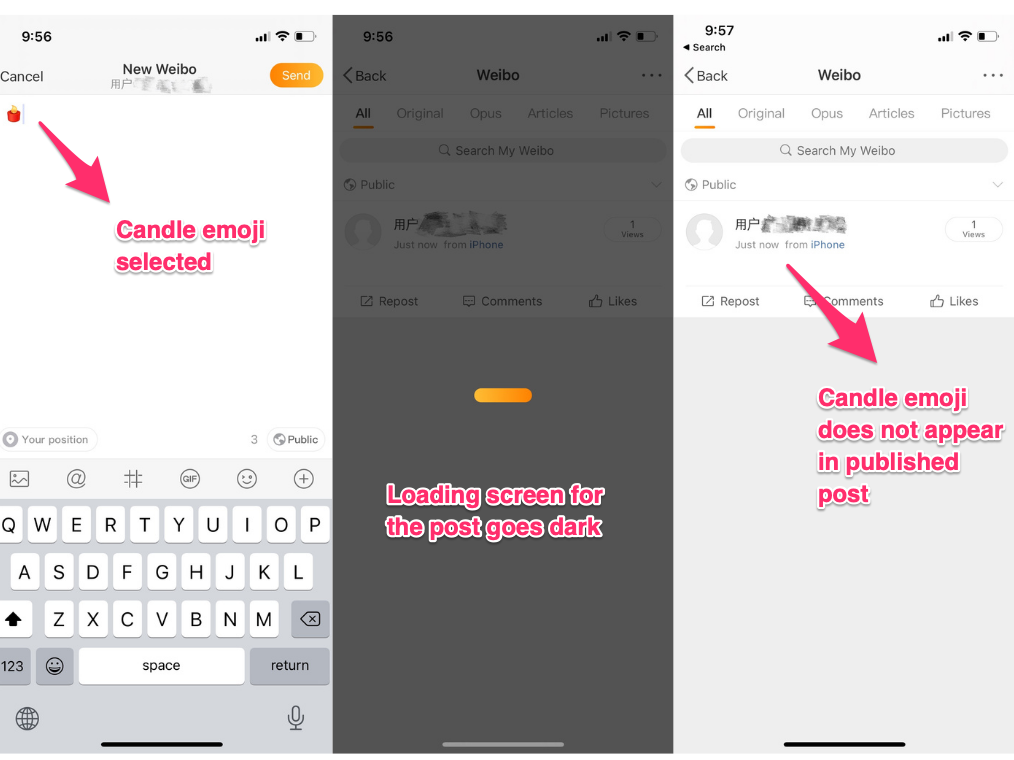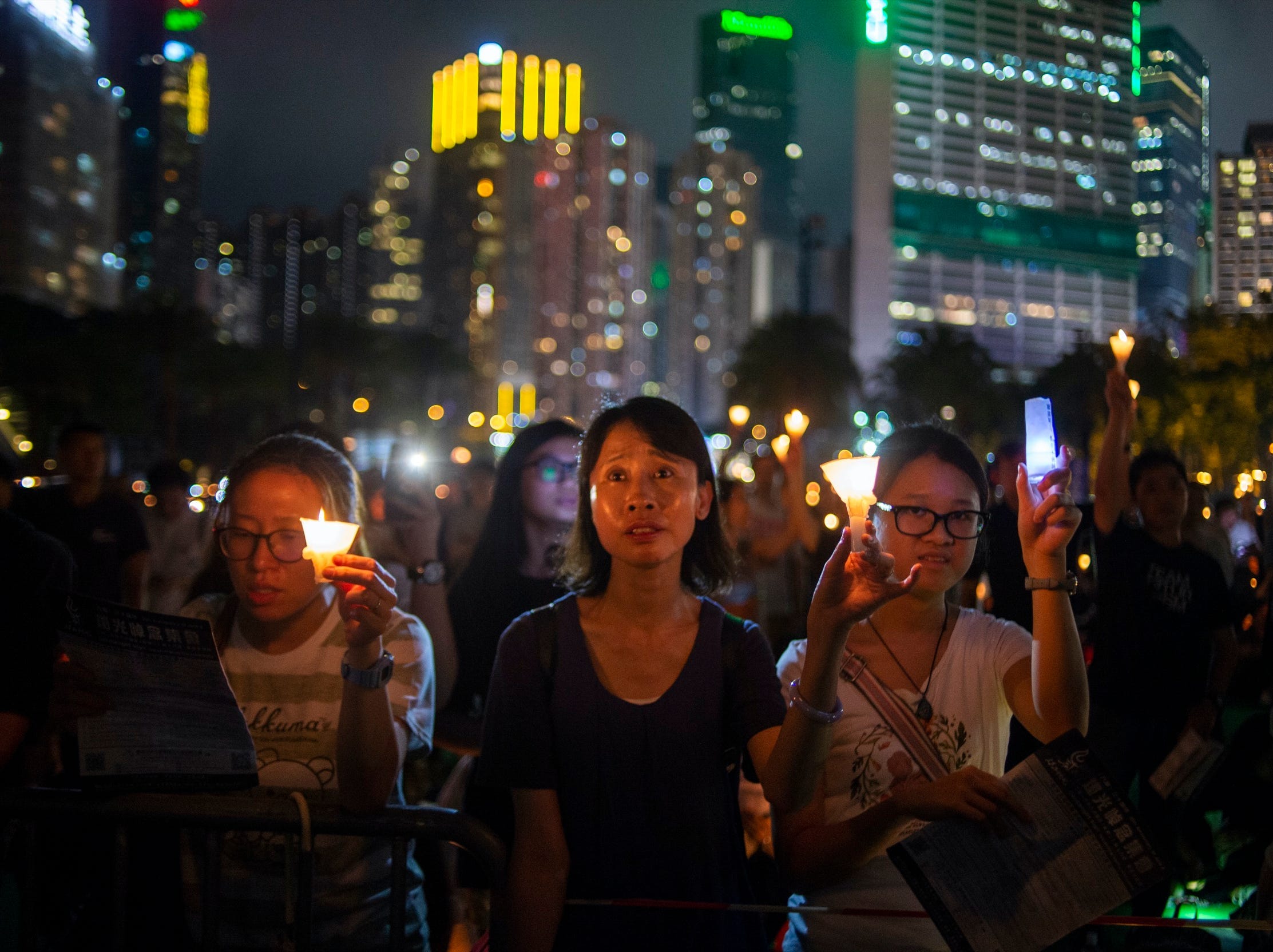
Cheryl Teh/ Weibo screengrab
- Censors blocked the candle and cake emojis from social media site Weibo, the Chinese version of Twitter.
- The removal occurred on June 3, one day before the anniversary of the 1989 Tiananmen massacre.
- Visit Insider's homepage for more stories.
Chinese censors are working overtime to prevent citizens from commemorating the Tiananmen Square massacre by blocking the candle and cake emojis – typically used to mark the occasion online – from the Weibo social media platform, the Chinese equivalent of Twitter.
When Insider tried to make a post on Weibo with a lit candle emoji, the published post turned up blank and did not display the icon.
The removal of the emojis coincided with the June 4 anniversary of the Tiananmen Square massacre in 1989, which saw nearly a million Chinese students pouring into the square in Beijing in pro-democracy protests. Tens of thousands of protesters were murdered when Chinese tanks and troops rolled into the Square, firing into the crowd – prompting worldwide condemnation.
The news was first reported on by cultural news site What's on Weibo, which highlighted the disappearance of the candle and cake emojis from the emoji keyboard on June 3.
This is not the first time that censors banned Weibo posts containing the candle emoji. In 2012, the Chinese censors blocked searches on June 3 and 4 altogether for the candle emojis and the Olympic torch.
The censorship extended to phrases in 2014. The BBC reported at the time that keywords and phrases like "Tiananmen" and "tank," along with seemingly harmless phrases like "candlelight" and "today," were all blocked. The candle emoji was also removed for a short time in 2017 when it was used in posts mourning Nobel Peace laureate and Chinese dissident Liu Xiaobo.
Censors have in the past had to play catch-up with the emojis used by people on the Weibo platform to evade their gaze. In 2018, for instance, women used emojis for "rice" and "bunny" - pronounced "mi" and "tu" respectively - to make posts about the Me Too movement.
Suppression of information on the Tiananmen massacre spills over to Hong Kong

Vernon Yuen/Getty Images
The blackout of Tiananmen-related information on Weibo coincided with the Hong Kong government's crackdown on memorials to commemorate the day. June 4 became an important occasion for the city's pro-democracy movement when activists in the city started planning protests around the date.
The Guardian reported that some 7,000 police officers had been deployed en-masse in the city to enforce a ban on the vigils this year. The memorials were not given the legal go-ahead for the second year in a row.
The AP reported that one of the organizers for the vigil, Chow Hang-tung, who is vice-chair of the Hong Kong Alliance in Support of Patriotic Democratic Movements of China, was arrested on Friday morning. The arrest came after Chow encouraged people to mark the date by "lighting a candle."
Last year, the government outlawing the event did not stop thousands from gathering to commemorate the date and defying the police ban on congregating.
The Hong Kong Free Press reported that some people were getting creative with commemorating the event in private this year. Artists encouraged residents of the city to write the numbers "six-four" on their light switches to remember the event every time they turn the lights on, while others collected used candle stubs from previous memorials for display.